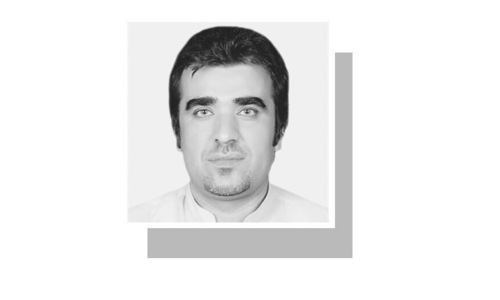DOHA, May 19: Crisis talks between rival Lebanese leaders hung in the balance on Monday after the Hezbollah-led opposition rejected a Qatari proposal aimed at ending a crisis which took Lebanon to the brink of civil war.
The rebuff threatened to derail the talks with government representatives on their third day.
The Qatari hosts had put forward compromise proposals calling for the immediate election of a new president by parliament and the formation of a unity government while postponing discussion of a proposed new electoral law.
But the Syrian- and Iranian-backed opposition refused to postpone discussion of a new electoral law, while stressing that it remained committed to a deal brokered by the Arab League in Beirut last week which paved the way for the Doha talks.
“The Lebanese opposition stresses its adherence to... (firstly) agreeing on the representation (of parties) in the formation of a national unity government, and (secondly) to agree on a new electoral law,” an opposition statement said.
“The agreement would be crowned by electing General Michel Sleiman as president as agreed.”
The two sides have agreed on the army chief as a consensus candidate to succeed Damascus protege Emile Lahoud, who stood down at the end of his term of office in November without a successor in place.
But differences over the makeup of a new unity government and proposed changes to the electoral law have blocked his election, worsening a crisis that began in Nov 2006 when six pro-Syrian ministers quit the cabinet.
The 18-month-old deadlock erupted into bitter sectarian fighting earlier this month that saw 65 people killed, and Hezbollah and its Shia allies briefly seize Sunni areas of west Beirut.
On Sunday Qatar proposed the formation of a unity government of 30 ministers, with 13 from pro-government parties, 10 from the opposition and seven chosen by the newly elected president.
The opposition has insisted that it wants more than a third of cabinet posts.
The proposed changes to the electoral law could prove decisive in determining the outcome of parliamentary elections due next year.
The two sides differ over the size of constituencies for the elections amid opposing assessments of their political advantage.
Government delegates said the next step was up to the Qatari hosts after the opposition’s rejection of their proposals.
Acting Foreign Minister Tareq Mitri accused the opposition of showing insufficient respect for the efforts of the Qatari mediators to find a compromise.
Prominent Christian leader Samir Geagea said the dialogue had been dealt a “heavy blow” by the opposition, which he charged “took matters back to square one”.
Qatar has also proposed including a clause in the final statement of the talks requiring all sides to renounce any new resort to armed violence in internal Lebanese disputes.
Disagreements between the two sides over Hezbollah’s large arsenal have proved an additional stumbling block in the talks, with the government representatives insisting that it be on the agenda.
Qatar sought to bridge the rift by offering to come up with a compromise proposal.
The head of the Hezbollah delegation, Mohammed Raad, said on Sunday: “The issue of the resistance, its arms and capabilities is not up for discussion.”
Youth and Sports Minister Ahmed Fatfat hit back by saying that “if the arms issue is not specifically addressed... then there will be nothing”.
Druze MP Akram Shehaieb said the pro-government bloc wanted to address only the issue of the weapons used “against the Lebanese people in Beirut and the mountains” in the recent clashes.
“The weaponry of the resistance is a Lebanese issue which will be debated in a (subsequent) dialogue led by the president in Lebanon,” he said.
Hezbollah was the only group that was not required to surrender its weaponry after the end the 1975-1990 civil war. It has always justified its exemption on the grounds of its struggle with Israel, which erupted into a devastating war in summer 2006.
—AFP










































Dear visitor, the comments section is undergoing an overhaul and will return soon.